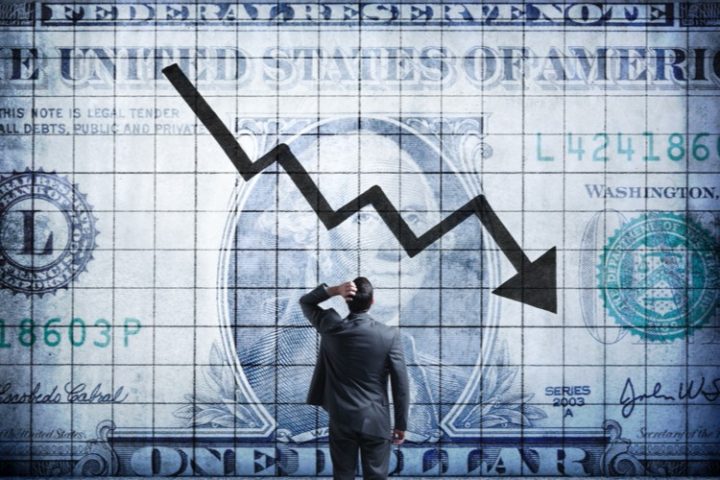
Two professors from Dartmouth College think the U.S. economy entered recession in August. One of them, Bruce Blanchflower, served on the Bank of England’s Monetary Policy Committee, lending additional credence to their conclusion:
We show [that] consumer expectations indices from both the Conference Board and the University of Michigan predict economic downturns up to 18 months in advance in the United States….
Downward movements in [both of these] consumer expectations [indices] in the last six months suggest the [U.S.] economy entered recession [in August].
The professors reported that any time those indices fall by more than 10 points, they accurately predict a recession in the next year to 18 months. The Conference Board’s consumer expectations index has reported at 25.3-point drop in 2021 while the University of Michigan’s index recorded an 18.4-point drop.
Even worse, those two indices predicted the 2008 global financial crash with numbers that weren’t as alarming: just a 19-point drop in the Conference Board index and a 21-point decline in the University of Michigan’s index.
Other measures of the U.S. economy confirm the professors’ conclusion. U.S Industrial Production (reported by Bloomberg) dropped 1.3 percent from the previous month (August), which itself was revised downward to negative territory.
The production of motor vehicles fell by 7.2 percent in September, following a decrease of 3.2 percent in August. And U.S. Manufacturing (again, hat tip to Bloomberg) dropped by 0.7 percent in September compared to August.
Back in May, Jim Paulsen, chief investment strategist for the Leuthold Group, said the coming recession would be caused by “the overuse and abuse of economic policy” by the Biden administration.
According to the Federal Reserve Bank of Atlanta, Paulsen is spot on. Its GDPNow model — a real-time measure of the health of the U.S. economy — was above seven percent in May. By August the model had dropped to 6.1 percent; by the middle of September it declined further to 3.7 percent.
Today GDPNow is reporting U.S. economic growth at just 0.5 percent.
Its next report is due on Wednesday.
Wall Street is also looking ahead to a flatlined economy. Although the popular averages are setting records, they only measure a part of the stock market. The Russell 2000, instead, has remained flat since March.
The political ramifications of such a sharp decline in U.S. productivity can scarcely be overestimated: the midterm elections will turn on “pocketbook” issues, as they always have. With gas prices at the pump jumping, with grocery stores increasingly showing empty shelves, with employment falling far below expectations, and with logjams at ports in California being blamed on the lack of truck drivers, it appears that the Dartmouth professors called it correctly. Not only that, but the precipitous fall from grace by the present occupant of the White House, as measured by recent polls, appears to spell disaster for the Democrats in November.
Related article:



